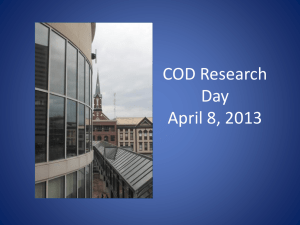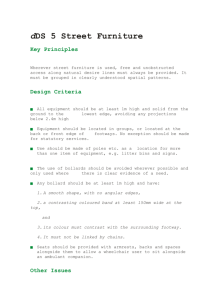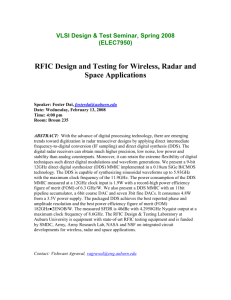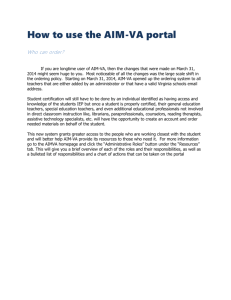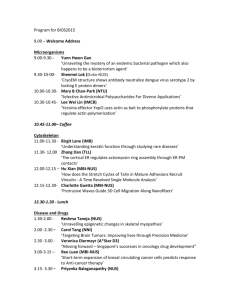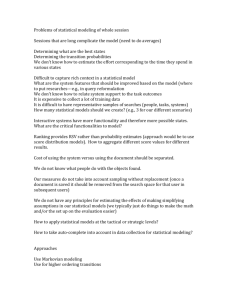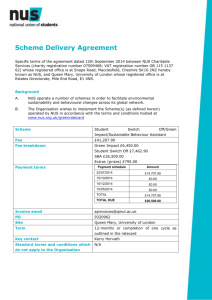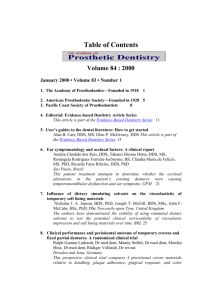LAS Seminar Poster Proposal NUS Libraries
advertisement
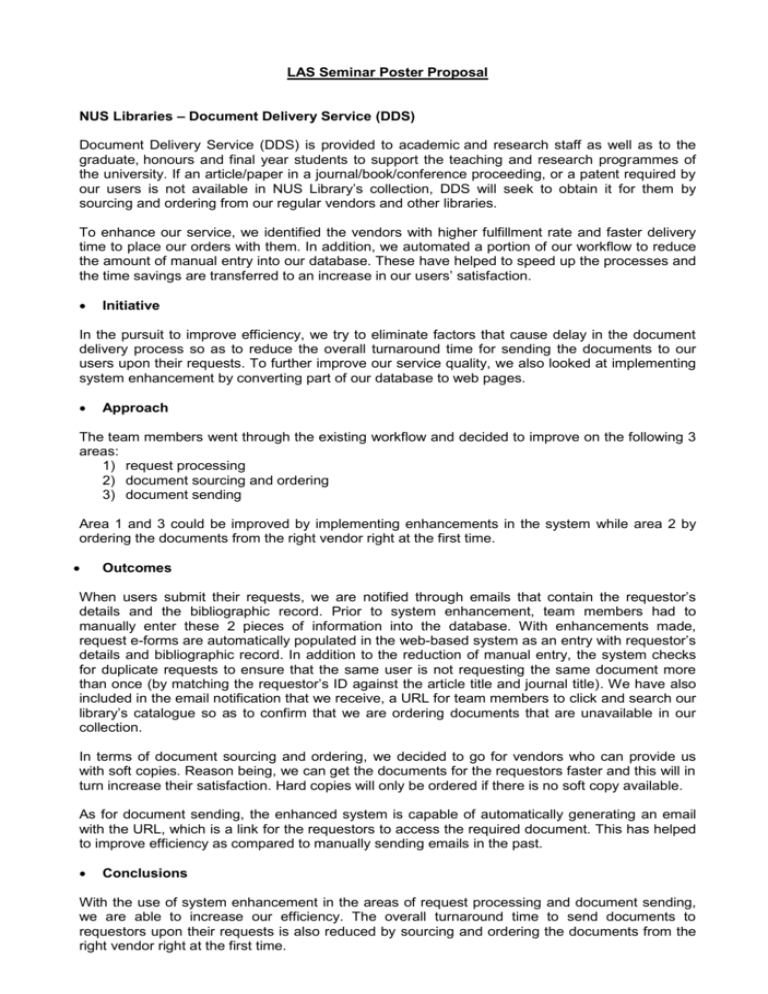
LAS Seminar Poster Proposal NUS Libraries – Document Delivery Service (DDS) Document Delivery Service (DDS) is provided to academic and research staff as well as to the graduate, honours and final year students to support the teaching and research programmes of the university. If an article/paper in a journal/book/conference proceeding, or a patent required by our users is not available in NUS Library’s collection, DDS will seek to obtain it for them by sourcing and ordering from our regular vendors and other libraries. To enhance our service, we identified the vendors with higher fulfillment rate and faster delivery time to place our orders with them. In addition, we automated a portion of our workflow to reduce the amount of manual entry into our database. These have helped to speed up the processes and the time savings are transferred to an increase in our users’ satisfaction. Initiative In the pursuit to improve efficiency, we try to eliminate factors that cause delay in the document delivery process so as to reduce the overall turnaround time for sending the documents to our users upon their requests. To further improve our service quality, we also looked at implementing system enhancement by converting part of our database to web pages. Approach The team members went through the existing workflow and decided to improve on the following 3 areas: 1) request processing 2) document sourcing and ordering 3) document sending Area 1 and 3 could be improved by implementing enhancements in the system while area 2 by ordering the documents from the right vendor right at the first time. Outcomes When users submit their requests, we are notified through emails that contain the requestor’s details and the bibliographic record. Prior to system enhancement, team members had to manually enter these 2 pieces of information into the database. With enhancements made, request e-forms are automatically populated in the web-based system as an entry with requestor’s details and bibliographic record. In addition to the reduction of manual entry, the system checks for duplicate requests to ensure that the same user is not requesting the same document more than once (by matching the requestor’s ID against the article title and journal title). We have also included in the email notification that we receive, a URL for team members to click and search our library’s catalogue so as to confirm that we are ordering documents that are unavailable in our collection. In terms of document sourcing and ordering, we decided to go for vendors who can provide us with soft copies. Reason being, we can get the documents for the requestors faster and this will in turn increase their satisfaction. Hard copies will only be ordered if there is no soft copy available. As for document sending, the enhanced system is capable of automatically generating an email with the URL, which is a link for the requestors to access the required document. This has helped to improve efficiency as compared to manually sending emails in the past. Conclusions With the use of system enhancement in the areas of request processing and document sending, we are able to increase our efficiency. The overall turnaround time to send documents to requestors upon their requests is also reduced by sourcing and ordering the documents from the right vendor right at the first time. Originality and potential value The use of web-based ASP form to manage our DDS requests has generated interest amongst fellow librarians from other academic institutions. We have thus far shared the ideas, workflow and processes with 2 teams from IHLs in Singapore. Libraries that have yet to automate their DDS will benefit from learning how we have enhanced our DDS system with application of IT. Poster contributor details Family name: Ng Given name: Peck Suan Title: Ms Employing organisation: NUS Libraries Position: Librarian Email: pecksuan@nus.edu.sg Contact phone : 65162036 Autobiographical note : Ng Peck Suan earned an MSc in Information Studies from Nanyang Technological University. She is currently a librarian at National University of Singapore, working in the Asset Management department.
